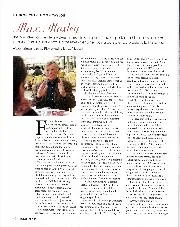He was also involved in the promoting of the European New Car Assessment Programme (Euro NCAP) that remains as the standard for the crash testing of new vehicles.
Alongside Bernie Ecclestone, the two shaped the modern Formula 1 that exists today with greater safety than ever before as well as increased TV income and a larger global audience.
Mosley held the position of FIA president all the way to 2009 and was re-elected on three occasions before stepping down following allegations about his personal life.
A court case against the News of the World in 2008 following an expose on his sex life led Mosley to become a strong campaigner for the right to privacy and further regulation of the press. He took the newspaper to British courts where he won his case citing a breach of his privacy.
“It’s like losing family, like losing a brother, Max and I,” Ecclestone told BBC Sport.
“He did a lot of good things not just for motor sport, also the [car] industry. He was very good in making sure people built cars that were safe.”


